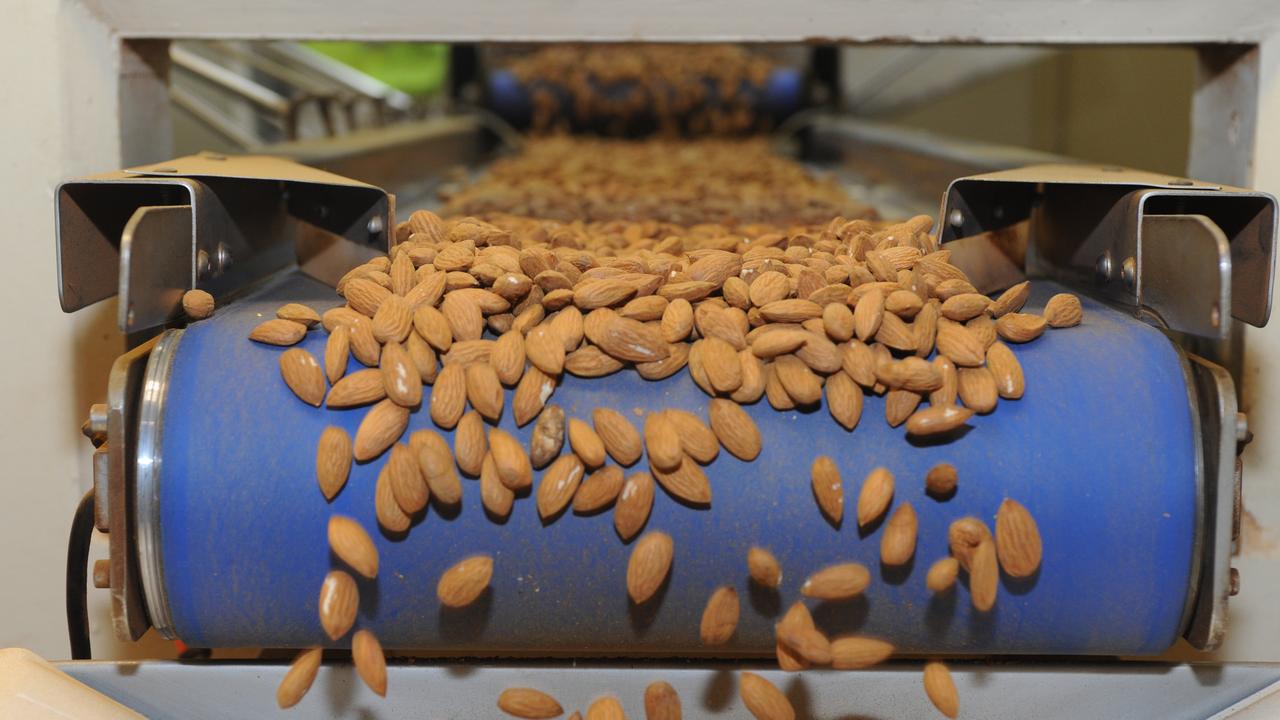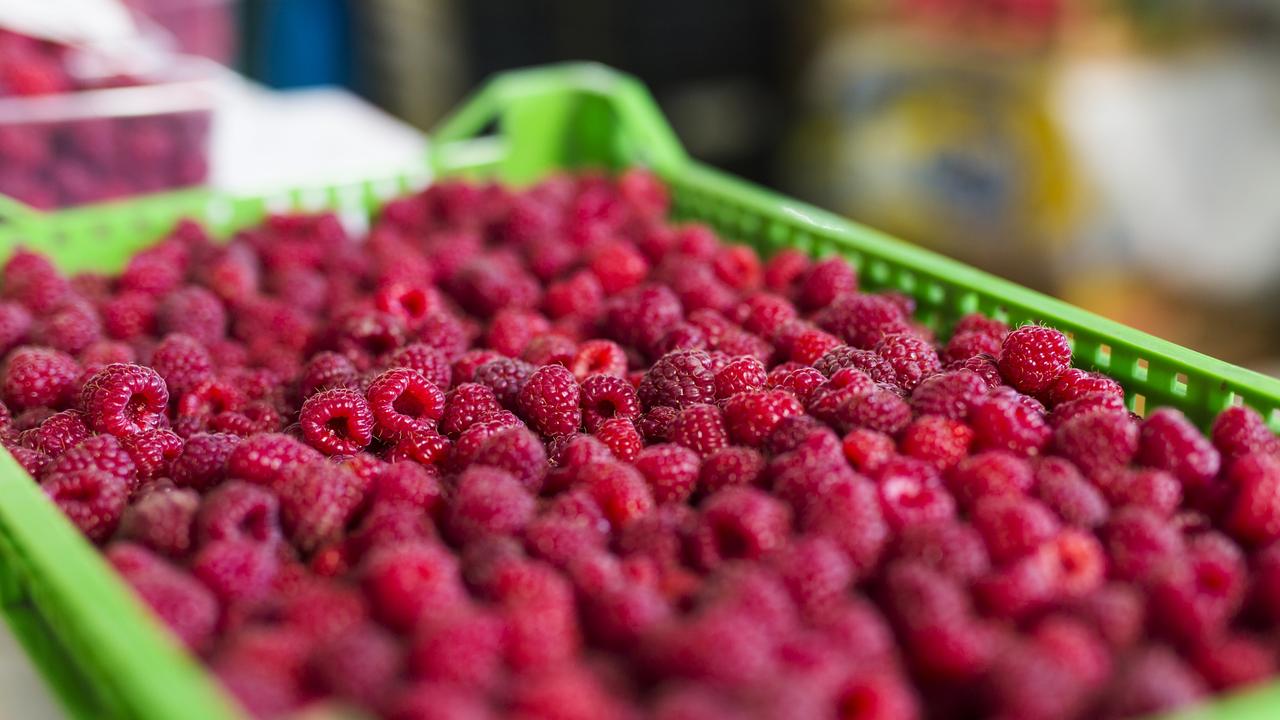Cherry farming: Tasmanian Nuffield scholar Jake Newnham eyes the future
Tasmanian farmer Jake Newnham scoured the globe looking for ways to advance Australia’s cherry industry. Here’s what he discovered.
AS a second generation Tasmanian cherry and apricot grower, Jake Newnham learnt early he had to work smarter.
“Tasmania is one of the most expensive places to grow anything, so we’re not in the business of growing commodities,” said the Nuffield scholar.
“The mindset we need to have is to keep evolving, to ensure we remain at the premium, pointy end of the industry.”
It’s a mindset Jake brings to the 40ha farm, which has 12ha under cherry production (and another 3ha in new production), yielding 120 tonnes annually, 80 per cent exported to premium Asian markets as gift boxes; as well as 9ha of premium heirloom apricots, yielding 90 tonnes, packed and sold domestically under their Lowdina brand.
It’s also a mindset the 30-year-old brought to his 2019 Nuffield scholarship: investigating how to advance Australian cherry production, most notably post-harvest packaging and handling procedures.
His travel – fortunately mostly pre-COVID – took him to Australia’s major cherry competitor Chile, as well as the US and up to Canada, missing a New Zealand conference because of the pandemic.
Jake said he was most interested in Chile because the country in six years went from zero cherry production to 200,000 tonnes exported to Asia, compared to Tasmania’s total 2000 tonnes of Asian export.
“The product out of Chile is improving and with a much lower cost of production.
“We are in a niche in Asia and so if our Tasmanian product is not the highest quality then other markets will take that, and our price point won’t stack up.”
So Jake’s Nuffield study concluded there was one key factor that can improve premium cherry products: storage temperature.
He said traditionally in Tasmania and on their own farm they pack cherries in plastic in 2kg sealed cardboard boxes in refrigeration that stores the fruit between 3-5C.
In contrast, his Nuffield travels found cherries could reach an optimum 0C if packed in vented boxes (with strategic holes) and stored in cool rooms that had forced air cooling or inline hydro coolers.
He said hydro coolers required a more costly retrofit, with cold water showering the fruit, whereas forced air cooling was low tech and forced cool air on to fruit.
“Cooling the way we currently do, fruit can’t get any colder, so we need to change our systems – packing and processes – which ensures a longer, better quality shelf life.
“Historically we use sealed boxes because of biosecurity protocols, but it can be changed through a different interpretation of those protocols for different markets.”
NET RESULT
ON the Newnhams’ farm in Campania, they introduced vented boxes this year, with forced air cooling ready for the upcoming summer harvest.
“Our export cherries go to China, often as gift boxes for Chinese New Year and in 2021 it’s one of the latest Chinese new years, which means we need to extend the life of the cherries as long as possible, so these new processes are perfectly timed.
“It means we’ll get less poor prices and have greater market flexibility.”
Jake said these back-end procedures did justice to the fruit grown on farm.
The Newnhams (Jake works with his parents Ian and Denise) grow four main varieties, including the heart-shaped, high flavour, black-fleshed Kordia.
“It’s a more difficult variety because it can be erratic with less yield, but it gets a premium price and is in high demand by markets, here and overseas.”
In addition they grow Lapins, Regina and Simone, with the first trees planted in 1999, and subsequent additions over the years.
The orchard is fully netted with a permanent, finely-meshed quad wind netting to stop wind, bird and hail damage.
Before they installed the netting about five years ago – at a cost of $40,000/ha – the family suffered about 40 per cent of fruit damage from wind alone.
The farm receives an annual average 460mm of rain, and the orchard has drip and microsprinkler irrigation, on black clay soil.
“Last year was drought conditions, which the fruit loved, although we had low irrigation water and salinity issues.
“This year is a wet season and cherries don’t like wet feet. The netting also reduces evaporation, so with the soil it’s hard to get rid of the moisture.”
BALANCING ACT
THE farm has three full-time staff and 150 pickers in harvest, which starts after Christmas and runs through January.
The majority of cherries are exported through an agent, with about 20 per cent sold domestically through Tasmania, and Sydney and Melbourne wholesale markets, to retailers, while the family also has a farm shop and sells at two farmers’ markets a week.
Apricots are equally a premium product.
Jake admitted the fruit was not common in Tasmania, but had been planted by his father in the late 1990s.
Furthermore, they grow the heritage 1600 English variety, Moorpark, which is seldom grown commercially in Australia.
“It marks easily and doesn’t present amazingly, but it’s a profitable crop for us. Like the cherries, it’s a premium product and we get a good price,” he said.
Initially the apricots were sold to the major supermarkets, but when they stopped selling them seven years ago, the family was forced in a year to pack and sell the fruit, branded Moorpark by Lowdina.
“It wasn’t easy but we’re super glad we did it, so much so we planted 3ha more and last year was our biggest yield.”
Harvest runs parallel to cherries, in January and they pick more often to ensure fruit is at maximum sugar levels.
“It’s a fine balancing act to get it ripe enough but not too ripe, and not under-ripe.
“You need someone in charge who knows what they’re doing.”
Jake said following his Nuffield travels, where he witnessed stone fruit orchards with higher yields, they now stop the early thinning of fruit, leaving more fruit on tree to the end of harvest, which has improved yields.
MORE
AROUND 6000 TASMANIANS WILL TAKE UP FRUIT PICKING JOBS THIS SEASON
KY-D PAK: DE PASQUALE FAMILY’S JOURNEY TO A FOUR FARM OPERATION
BALDWIN FAMILY PUTS FOCUS ON NEW IDEAS FOR BAIRNSDALE APPLE ORCHARD


